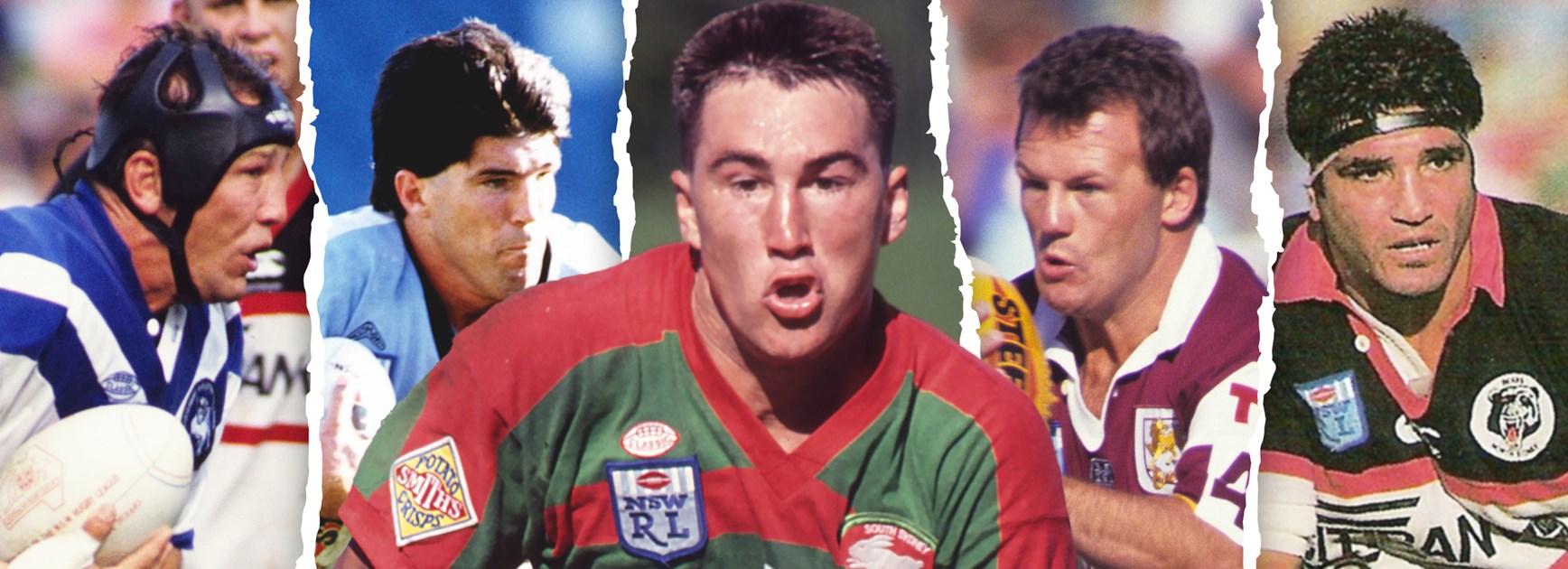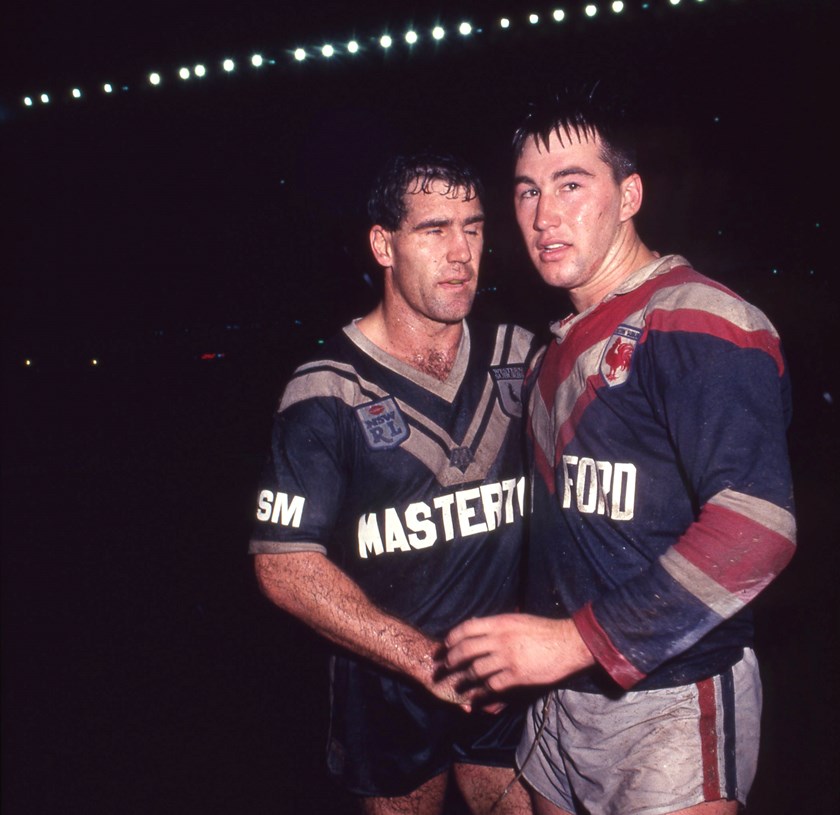
The 127 players who put their homes on the line to successfully challenge the draft system in court have been praised for giving the Rugby League Players' Association credibility and purpose.
The legal battle, which began after the NSWRL introduced a draft ahead of the 1991 season, is pinpointed in a new documentary, The Professionals, as a key issue that galvanised players as the game evolved into a full-time job.
"From my perspective as captain of [Balmain] I felt that the association really stepped up when the draft was proposed and united the players, and did a fantastic job in terms of putting a case together to oppose the draft," former NSW captain and coach Wayne Pearce said.
The Professionals documents the transition of the game since the formation of the RLPA in 1979 until now, with players being part-time and training at night because of work commitments until the Super League war in 1995.
The Professionals
Narrated by Danny Buderus, The Professionals features the likes of Pearce, Peter Sterling, Ron Coote, Dennis Tutty, Tom Trbojevic, Michael Crocker, Robbie Farah, Dene Halatau, John Dorahy, Mick Potter, Clint Newton, Graeme Hughes and Tony Butterfield giving a players' perspective on the key events that shaped the game.
Among them are:
- The Dennis Tutty case;
- The Draft challenge;
- The Super League war;
- Collective Bargaining negotiations, and;
- Becoming partners in the game.
Also interviewed are former Western Suburbs and St George coach Roy Masters and ex-Dragons and Canterbury prop Kevin Ryan, a barrister who became president of the RLPA and led the battle against the draft.
Sneak Peek: The Professionals
"Players worked full-time and they had to fit football around that but they couldn't have lived on their income from football," Ryan explains in The Professionals.
"The Players' Association had always been very low-key and not very instrumental in any policy or anything like that but it became very much in focus in the late 1980s and early 1990s because of the NSWRL's decision to introduce a draft scheme, which allowed clubs to just send players anywhere at any time. They just rebelled en masse."
The first internal draft was held in November 1990 and there was a second draft in January 1991, with clubs taking turns at picking players based on where they finished on the ladder in 1990.
Wooden spooners South Sydney had first choice and premiers Canberra got the 16th pick but 92 players were passed over in the first draft as some clubs devised a strategy to drive down wages.

South Sydney centre Terry Hill had agreed to join Western Suburbs but he was drafted by the Roosters in a move that resulted in 127 players acting as plaintiffs in a legal case against the NSWRL.
"We ended up in the High Court and the High Court supported the players' position that it was taking over their lives and taking over their careers," Ryan said.
"The High Court found that the proposed draft was a restraint of trade, and an interference with a person's right to negotiate their own lives and future and so on.
"Those players were very brave men because they had no financial support and they all put their name on the line, which meant they put their homes on the line, because if they had lost the League would have come after them for costs."
Butterfield said: "To get a success there resonated nicely with the players and it was one of the first times in my time as a player that the players were able to pull together as a group."
Butterfield later became RLPA president after the Super League war and led what were at times tense collective bargaining negotiations with the NRL, which led to the cancelling of the 2003 Dally M awards.
The Professionals also looks at the impact of the Super League war, which is described as good for the players because their pay packets increased significantly but bad for the game, the Tutty case and the change to full-time professionalism from the players' perspective.


